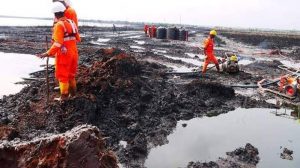Nigeria’s CNG Revolution: A Beacon of Hope for Energy and Transportation

Nigerians can anticipate the delivery of Compressed Natural Gas (CNG) infrastructure within the next three months, marking a pivotal moment in the nation’s energy landscape.
This development stems from a strategic agreement between the Nigerian National Petroleum Company Limited (NNPCL) and Nipco Gas Limited, outlining plans for the rollout of CNG infrastructure.
The comprehensive plan is unfolding in two critical phases, with the initial stage focusing on establishing 21 CNG stations catering to transportation needs within cities.
These stations are anticipated to be operational by the first quarter of 2024.
Subsequently, the second phase involves the creation of 35 CNG stations to facilitate transportation between cities, with completion targeted by the end of 2024.
To reinforce this initiative, an additional 56 stations are set to be deployed across the country under the umbrella of NNPC Retail stations.
This multi-phase approach aims to enhance CNG accessibility across various transit routes, promoting the adoption of CNG as an environmentally friendly fuel option.
Kelvin Emmanuel, CEO of Dairy Hills and an Energy Markets Analyst, sheds light on the financial aspects of establishing a CNG mother station.
With an average cost of around $1.2 million for a single CNG mother station, the collaboration between NNPCL and Nipco Gas Limited, intending to develop three such stations, suggests a potential expenditure of approximately $3.6 million.
While Nigeria grapples with electricity challenges, currently producing 4,000 megawatts, the CNG infrastructure could offer a promising alternative.
The Minister for Power, Adebayo Adelabu, acknowledges issues in transmission and distribution, citing aging infrastructure, lack of maintenance, and financial constraints.
The comprehensive CNG value chain, encompassing mother and daughter stations, could provide a robust solution.
Kayode Oluwadare, a natural gas analyst, highlights the critical components of setting up a CNG station.
Emphasising the importance of off-grid electricity, Oluwadare clarifies that while electricity is essential, CNG stations often rely on improvised or off-grid sources to power efficiently.
The CNG infrastructure’s intricacies involve mother-daughter stations, with the mother station acting as a central hub linked to existing gas pipelines.
The distribution to daughter stations, categorised as mobile and booster, ensures the smooth flow of gas for transportation and industrial purposes.
Source: Nairametrics








